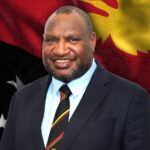Prime Minister Hon. James Marape has expressed his gratitude to all MPs who voted in favor of a new legislation that would bar politicians from holding public office for a minimum of five years following dismissal. The proposed amendment to Section 31 and Section 219 (1) (a) (iv) of the Constitution received unanimous support in the first parliamentary vote, with a final vote scheduled in two months to enact the law.
On Thursday, June 8, 2023, Parliament demonstrated overwhelming support with an 87-0 vote for the Proposed Amendment. Section 31 addresses the disqualification of MPs who have been dismissed from public office, while Section 219 (1) (a) grants authority to the Ombudsman Commission to investigate public servants and individuals employed by State-Owned Enterprises.
Section 31 currently mandates a three-year disqualification period after dismissal for misconduct in office. It is recommended to extend this disqualification period to five years. The penalty regime of the Ombudsman Commission has long been outdated and requires a thorough review to meet reasonable and appropriate standards.
The revised penalties should serve as a deterrent, reflecting the level of resources invested by the Ombudsman Commission in its investigations and the establishment of Leadership Tribunals. Consequently, Section 31 (1) will be amended, replacing the term ‘three’ with ‘five’.
“I extend my heartfelt appreciation to all 87 MPs present in Parliament today for their resolute support of this new legislation,” said PM Marape.
“Their names should be duly recorded for posterity.
“These leaders have united in voting for an extended penalty duration of five years for dismissed officials.
“The perception among Papua New Guineans that all MPs engage in corruption needs to be challenged. These leaders have endorsed the Independent Commission Against Corruption in 2020, and now, they have supported the initial vote to extend the duration of dismissal from office for our leaders.
“This proves that our leaders prioritise the national interest over personal gain.
“We have not witnessed such a profound commitment to fighting corruption in the past.”
PM Marape emphasised that Section 219 (1) (a) empowers the Ombudsman Commission to investigate public servants and those employed by State-Owned Enterprises.
“Whether they like it or not, individuals in public office must be held accountable under the law,” he asserted.






